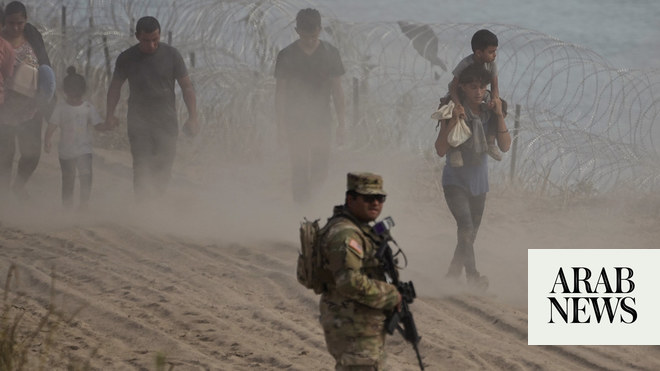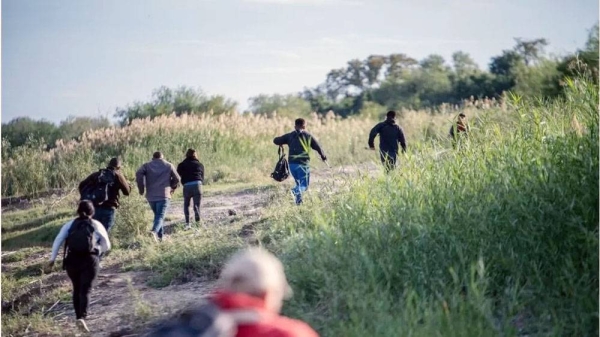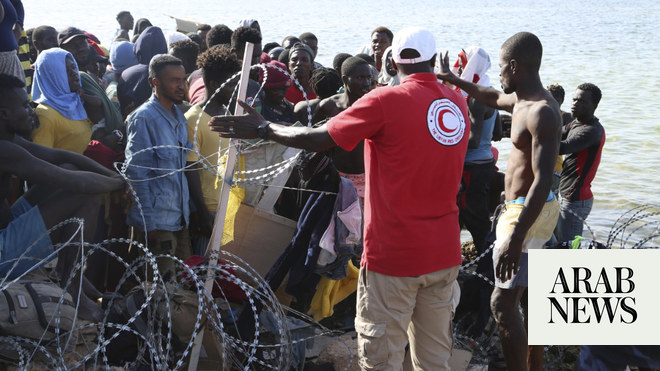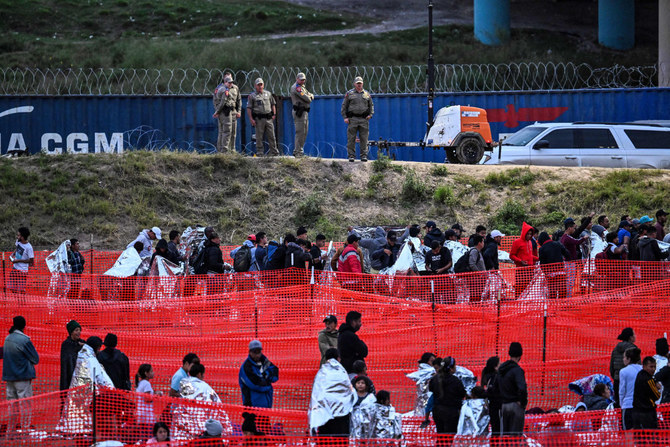
Aug 11 (Reuters) - Melissa Pinedo, a 27-year-old single mother from Guatemala, has been living in a tent in Reynosa, Mexico, across the border from Texas for weeks trying to find someone to call about a fast-closing window for seeking U.S. asylum.
"There are numbers of lawyers that are circulating, but no one answers. They are overwhelmed," she said in a phone interview.
She is one of thousands of migrants in northern Mexico left with few options as the U.S. government and non-profit groups wind down a program that allowed for a narrow number of asylum seekers to be exempted from a sweeping border expulsions policy.
Pinedo said she and her brother witnessed the gang murder of a shopkeeper who failed to pay extortion fees two years ago. Gang members tracked down her brother and killed him a month later, she said. She escaped to a different neighborhood.
But she decided to flee northward with her 8-year-old daughter earlier this year after gang members found her and tried to abduct them, she said.
She made her way through Mexico by bus and hoped to seek asylum in the United States, paying smugglers $1,000 this summer to cross the Rio Grande river. But border agents quickly expelled them before Pinedo got a chance to tell them her story.
Desperate, she decided two weeks ago to send her daughter across the border alone. Her daughter is now in U.S. federal custody for minors, waiting to be released to Pinedo"s relative who resides in Los Angeles.
Now, with the humanitarian exemptions to the expulsion policy dwindling away, Pinedo is running out of options to seek safety and reunite with her daughter.
The controversial public health policy, known as Title 42, allows border agents to quickly expel most migrants caught crossing the U.S.-Mexico border.
U.S. President Joe Biden, a Democrat, has kept the March 2020 public health order in place and recently extended it. read more In addition to pushing migrants back into northern Mexico under the policy, the administration last week started flying migrants to Mexico"s southern border with Guatemala.
Biden, who took office promising a more humane approach to immigration than his Republican predecessor Donald Trump, implemented a system earlier this year to allow some migrants deemed the most vulnerable to apply for protection in the United States. He also exempted unaccompanied minors from the policy.
A consortium of non-profit organizations that helped the administration identify at-risk migrants for these exemptions is discontinuing their program at the end of the month, groups involved said. The groups have said they want to see Title 42 ended and always saw the exemptions as temporary.
At the same time, a separate similar process organized by the American Civil Liberties Union (ACLU) ended on Monday, said ACLU attorney Lee Gelernt, after the organization restarted a lawsuit against the government to scrap the Title 42 policy for families. read more The suit argues cutting off access to asylum at the border is illegal and that migrants face kidnapping and assault when they are left stranded in dangerous border towns in Mexico.
"The Biden administration"s decision to abruptly end humanitarian exemptions and illegally keep the border closed to asylum seekers plays into the hands of cartels who claim that they are the only reliable means for people to enter the United States," said Noah Gottschalk of Oxfam America, one of the groups involved in the litigation.
David Shahoulian, a top U.S. Department of Homeland Security (DHS) official, said in a court declaration that the government "is committed to continuing to use mechanisms" to allow for exemptions, without elaborating.
DHS when asked about the end of the exemptions said the agency"s "collaboration with organizations referring cases is fluid," without giving more details about future plans. U.S. Customs and Border Protection did not respond to a request for comment about individual cases. The Office of Refugee Resettlement, which handles unaccompanied minors, said they do not have official numbers but staff had noted hundreds of children referred to their care indicated they have family still in Mexico.
"SO DANGEROUS HERE"
According Shahoulian"s court declaration, some 16,000 migrants have been given the humanitarian exemptions to date under Biden, who took office on Jan. 20. That is a small fraction of the more than a half million migrants encountered at the border, including families with small children, who have been expelled under Title 42 since February. Those numbers include individuals who may have tried to cross multiple times.
In Reynosa there are now an estimated 2,000 people – mostly families from Central America - living in a small plaza packed with a tangle of camping tents, clothing lines, and informal community kitchens near the international bridge leading to McAllen, Texas. read more
Ingrid Aguilar, 39, also from Guatemala has been in the plaza for two months after she and her 17-year-old son were caught by U.S. border agents and expelled. She said she fled her homeland after gangs threatened her son.
She now helps distribute food and other donations to those in the plaza, who also have little access to basic amenities. People in town charge migrants to bathe and use bathrooms, she said, which drains people"s minimal resources.
After they were expelled back to Mexico, Aguilar was so worried about her son being forced to return to Guatemala that she sent him across the border alone. She stayed, hoping for a humanitarian exemption.
Now she is stuck waiting with few answers.
"They just tell you to register and wait for a call," she said in a phone interview. "It is so dangerous here. You escape from your country, then you end up here and it"s the same thing."












